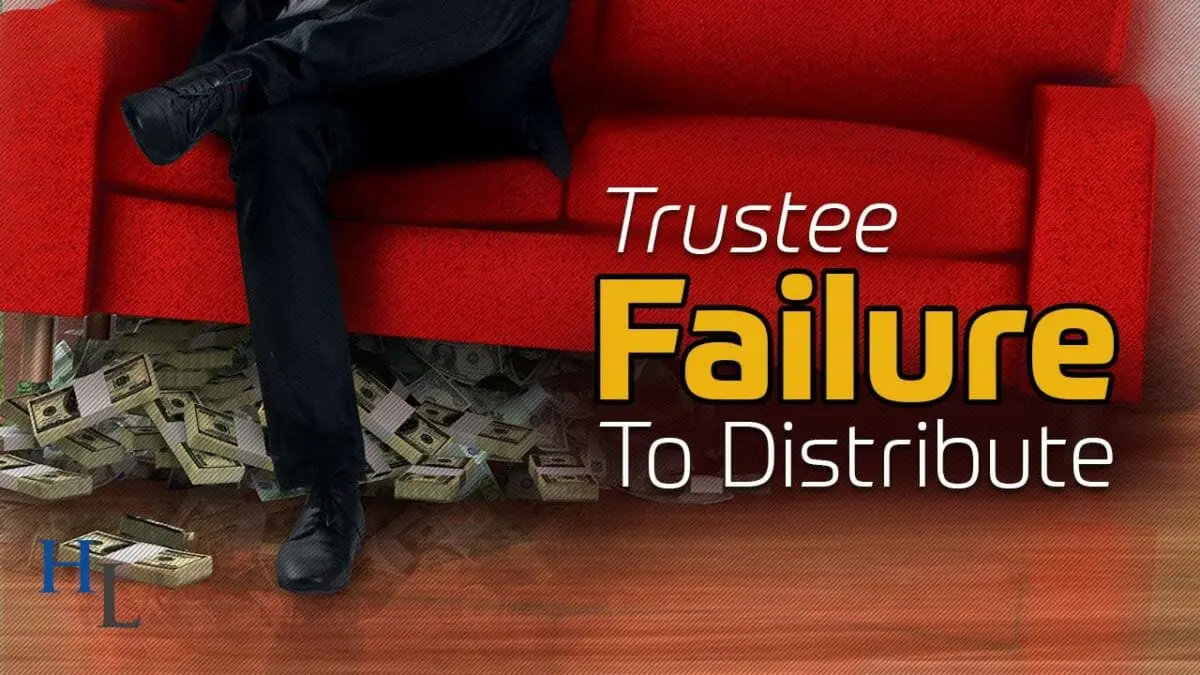
Remove a Trustee | Failure to Distribute
I’m Mike Hackard with Hackard Law. We often represent beneficiaries in actions to compel distribution of trust assets.
The beneficiaries are usually family members. The trustee, the adverse party, is frequently a family member as well. The settlor, the maker of the trust, is normally a parent.
These cases rise from the failure of the trustee to distribute trust assets in a timely manner. Typical trust provisions require the trustee to terminate the trust upon the death of the settlor and distribute the assets outright and free of trust to the settlor’s beneficiaries – often the settlor’s children.
So, what happens? An example.
The settlor, the mother of three adult children, dies in 2016. The settlor’s son is named the trustee. He, along with his two sisters, are equal beneficiaries.
The trustee takes control of the settlor’s California house. He rents it and uses the steady stream of income for himself.
His sisters make clear that they want the trust terminated and the proceeds from the sale of the house distributed equally. He rebuffs them.
He says he has lots of reasons to keep the house. He wants to fix it up to make it more valuable. He’s worried about property taxes. He wants to pay his wife’s brother to fix it up. The reasons for delayed distribution go on month after month, year after year.
Now, six years after their mother’s death, the sisters hire a law firm like Hackard Law. The law firm files a petition for an order distributing trust assets, removing the brother as trustee, suspending his powers during the litigation, appointing a new trustee, and surcharging the brother for his breach of fiduciary duties.
The trustee hires his own attorney and pays him with trust funds. The sisters argue that the property should have been distributed six years ago upon their mother’s death. Their brother argues that he has the sole power to decide to sell the trust property.
The sisters are frustrated. They want their brother removed as trustee. The grounds for California trustee removal include the trustee’s breach of trust, the trustee’s unfitness to administer the trust, the trustee’s hostility with the beneficiaries that impairs the administration of the trust, and the trustee’s failure to act.
So, given these circumstances, what do we know about the trustee’s duties? We know a trustee must pursue the interests of beneficiaries, not himself. We know a trustee must not wield power for the trustee’s own aggrandizement, preference, or advantage to the detriment of the beneficiaries.
We know that a trustee as a fiduciary should be of the highest character whose duty demands the strictest integrity. And we know that a trustee is bound to act in the highest good faith towards his beneficiary and may not obtain any advantage by the slightest misrepresentation, concealment, threat, or adverse pressure of any kind as long as the fiduciary relationship exists.
The sisters know their brother well. They know this litigation is going to take time. They believe the longer their brother serves as trustee the more vulnerable their beneficiary interests become. They want to have their brother removed.
California law provides that to preserve the trust and to respond to perceived breaches of trust, the probate court has wide, express powers to remove a trustee. Whether the trustee is removed or not, he will still be chargeable for his breaches of trust. This can include any loss or depreciation in the value of the trust estate, and his profits made by his breach, with interest.
These cases proceed toward trial. The sisters have a plan to prove their damages. The case, like it or not, will consume trust assets. It feels so unnecessary.
Still, situations like this are an ever-present reality litigated in California’s probate courts.
Hackard Law litigates cases like this and many others resulting from abuse of heirs, beneficiaries, and elders.
If you’d like to talk with us about your case, call us a 916 313-3030. We’ll be happy to speak with you.
Hackard Law: Attorneys Making a Difference

 (916) 775-8542
(916) 775-8542